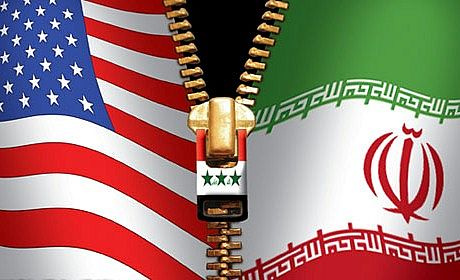Iran Should Have Agreed with the US from the Beginning

There is an analysis that Europe has always benefited from the Iran-US dispute. How accurate, in your opinion, is this assessment? Could this mean that, at the present time, the EU opposes a bilateral agreement between Iran and the US? Can the statements made by the French Foreign Minister be evaluated in this way?
In my opinion, this analysis is incorrect. Europe has never wanted Iran-US relations to be soured. The only issue, the signs of which can be seen, is that France, from the moderate independence-seeking positions of Iran with regards to the US, is growing hope in its heart to be able to reach its old dream of playing a more distinguished role in the Middle East through Iran. Souring relations between Iran and the US, not only did not have any benefit for the Europeans, but they also inflicted great economic and trade damages on them. Recent statements made by Laurent Fabius should be evaluated in the Western orchestra. It means that when there seems to be little flexibility, other allies should remind Iran not to raise its hopes because the West is still serious in its positions.
You mentioned the red lines of the Europeans. It has always been stated that the three issues of Iran's nuclear program, terrorism, and human rights have been the issues of difference between Iran and the West. Is there any difference between Europe and the US in the prioritization of these issues? Is it a correct analysis to say that the US pays more attention to the nuclear issue than human rights violations? Do they have different opinions with the Europeans?
There do not seem to be differences in the positions of the US and Europe. Contrary to appearances, neither of them is serious about human rights and view it only as an instrument of pressure. If more cries are apparently heard from Europe with regard to human rights issues, they are more related to civil institutions and active groups which exist in Europe; or more distinguished people in Europe take human rights issues seriously; not that the European governments is concerned about human rights.
During the reform government, Iran's negotiating parties were three European countries, a group which was later changed to the P5+1. How beneficial, in your opinion, has this change been for Iran?
Iran thought that the more the number of negotiating parties, the more the differences of opinion between them would be. On the contrary, the westerners believed that the more the number of their allies, the more its political weight would be. Therefore, the demand and role of both parties were the same but from different perspectives.
At the present time, how beneficial will it be for Iran if Iran negotiates with the US instead of the P5+1? Can an agreement with the US solve Iran's problems with the world community?
In my opinion, the solution to Iran's international problems from the beginning has been to make an agreement with the US. We never had problems with Europe. It was US diplomacy to convince them to have more cooperation with the US. Iran's issue, today, is very similar to the 1962 Cuban Crisis. At that time, the threat of an atomic war led the US and the Soviet Union towards direct negotiations and a phone line was established between the White House and the Kremlin, which the Americans called the “red phone”. The same direct negotiations led to a solution to the problem and the threat of war was removed. At that time, there were two analyses; one considered the US the winner, stating that the US threat caused the Soviet Union to retreat, and the other considered the Soviet Union the winner, which I believe was the more accurate analysis. The reason is that the arrogant US was forced to accept the Soviet Union as its counterpart and recognize its rights in the world and also accept its domination over Cuba. Now, if such negotiations occur between Iran and the US, I, as an Iranian, will be proud that my country is able to sit at the negotiation table as a US counterpart after thirty years of efforts and resistance. This is while, thirty-five years ago, we were considered as the US lackeys; exactly like the situation where an employee can sit at the dinner table with his boss. Is the boss the winner, or the employee? But, I don't hide my suspicion that if such negotiations take place without reaching an agreement, war between the two parties will be certain, and the loser is the one which has less power. In this case, contrary to what some assume, our country will be pushed back thirty years, its infrastructures will be destroyed and whatever has been gained during these last thirty years will be lost. Then, Iranians must expect an Iranian Karzai.

